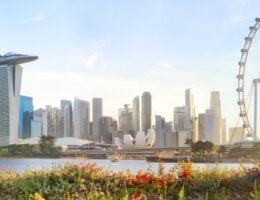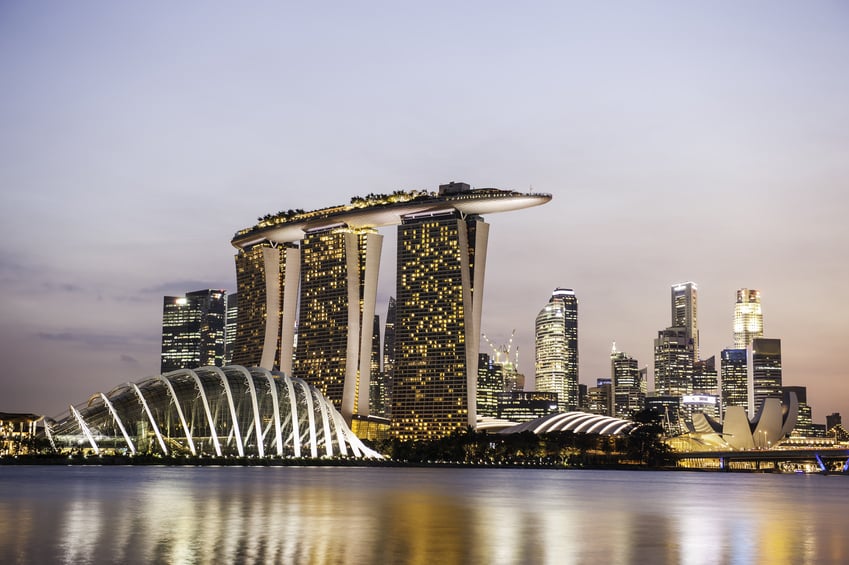Rising investor expectations have spurred a global push for publicly listed companies to disclose comprehensive sustainability information. As a result, regulatory bodies worldwide are either mandating or strongly recommending the issuance of sustainability reports by PLCs, focusing on environmental, social, and governance factors. The integration of ESG disclosures with financial reporting enables investors to evaluate more accurately the financial outlook and management effectiveness of PLCs, a trend strongly supported by regulators.
Across jurisdictions, we see a rising trend towards more active ESG enforcement and litigation. In our The Year Ahead: Global Disputes Forecast 2024, nearly three-quarters (73%) of the respondents said that environmental, social and governance disputes presented as the top risks to their organizations in the coming year.
In this client alert, we provide a high-level overview of the key trends and developments in ESG enforcement and litigation in Singapore in three areas: greenwashing, employment law and anti-money laundering (AML).
Baker McKenzie is proud to launch a series of webinars aimed at helping employers understand current employment trends and issues in the South East Asia region. Some of the topics discussed are Alternatives to the Traditional Employment Model, and complexities of Workforce Optimization.
Baker McKenzie’s Asia Pacific Employers’ Forum took place in Singapore on Thursday, 27 April 2023. You can access a number of related resources relating to employment issues and trends.
In the recent decision of Goh Ngak Eng v Public Prosecutor [2022] SGHC 254, the Singapore High Court declined to employ the existing sentencing framework for private sector corruption offences involving agents under section 6 of the PCA as set out in Takaaki Masui v. Public Prosecutor and another appeal and other matters [2021] 4 SLR 160.
Section 6 of the PCA criminalizes the actions of agents who corruptly receive or give gratification as an inducement or reward for performing or withholding performance in relation to their principal’s affairs or business.
In developing a new framework, the High Court cautioned that the sentencing exercise is not meant to be seen as a mathematical equation; sentencing frameworks are only meant to serve as guides and should not be used to produce a mathematically precise formula that identifies a precise point for the sentencing court to arrive at in each case.
In two separate decisions, the High Court provides a new sentencing framework that imposes heftier punishments for failing to ensure the safety of employees at work and provides clarification as to whether settlement payments may be taken into consideration when determining the amount of compensation payable by an employer for workplace injury. The General Division of the High Court (SGHC) in two recent decisions in Public Prosecutor v Manta Equipment (S) Pte Ltd [2022] SGHC 157 and MTM Ship Management Pte Ltd v Devaswarupa and others [2022] SGHC 178 considered two pieces of legislation concerning workplace safety and accidents in Singapore.
Dong Wei v Shell Trading (Pte) Ltd and anor [2022] SGHC(A) 8 concerned an appeal from the decision of the Singapore High Court in a case relating to the termination of an employee’s employment without cause and with pay in lieu of notice, following two investigations into allegations of conflicts of interest.
Singapore’s Prime Minister Lee Hsien Loong, at his recent National Day Rally speech, acknowledged the anxiety felt by middle income Singaporeans over foreign work pass holders, especially with the economic uncertainty heightened by COVID-19.
Addressing what he described as personal and emotional arguments by Singaporeans over perceived foreign competition for jobs and opportunities, the prime minister signaled that the government will introduce new anti-discrimination laws with a range of penalties extending beyond the current administrative penalties, such as restrictions on an employer from hiring foreign workers.
When allegations of misconduct are levelled against employees, employers are often left with the task of conducting internal investigations to get to the bottom of the matter. Employment legislation in Singapore does not prescribe specific standards or processes for such investigations. This has given rise to a number of practical questions for both employers and employees. The Singapore High Court in Dong Wei v Shell Eastern Trading (Pte) Ltd and another [2021] SGHC 123 addressed these issues.
In 2016, an influential Agency Manager of Prudential Assurance Company Singapore orchestrated a mass exodus of over 200 agents to a competitor, Aviva Financial Advisors Pte Ltd. Prudential, in turn, sued the Agency Manager for up to S$2.5 billion in damages, in a high-profile case which attracted significant media attention in Singapore.


![Global: Reforming the Workforce in Uncertain Times [Webinar Series]](https://www.globalcompliancenews.com/wp-content/uploads/sites/43/2023/06/banner_seaemploymentworkshopseries_1440x400-260x200.jpg)




